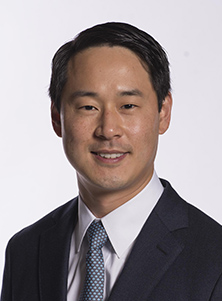Prof. James Choi Wins Paul A. Samuelson Award
The award honors research on the effect of returns disclosure on risk-taking, a challenge to a long-held theory of investment behavior.
A paper co-authored by Professor James Choi has won the 22nd Annual TIAA Paul A. Samuelson Award for Outstanding Scholarly Writing on Lifelong Financial Security, the TIAA Institute announced on January 5. The Samuelson Award recognizes outstanding research that the private and public sectors can use to maintain and enhance Americans’ financial wellbeing.

Choi and his co-authors, John Beshears, David Laibson, and Brigitte Madrian of Harvard University, were recognized for their paper “Does Aggregated Returns Disclosure Increase Portfolio Risk-Taking?,” which examines previous studies’ findings that participants take more investment risks if they see returns less frequently, see portfolio-level returns, or see long-horizon historical distributions. The authors offer a different perspective, which challenges what has been widely accepted about how investor behaviors and disclosure policies affect risk-taking.
“We’re honored to receive the Samuelson Award for our work on the design of investment returns disclosure,” said Beshears, Laibson, Madrian, and Choi in a joint statement. “The TIAA Institute has a long history of supporting impactful research that promotes financial security. We hope that our article continues this tradition by shedding light on the elements of the information environment that do and do not influence individuals’ portfolio choices.”
“Congratulations to John Beshears, David Laibson, Brigitte Madrian, and James Choi for compiling an outstanding piece of research,” said Stephanie Bell-Rose, senior managing director and head of the TIAA Institute. “This research will be useful for financial advisors, individual investors, and their families when they prepare to make investments for lifelong financial security.”
“The need to encourage adequate saving and appropriate portfolio choices is well understood by academics, plan sponsors, and policymakers alike,” said Andrew A. Samwick of Dartmouth College, one of this year’s judges. “Based on prior research, it had become generally accepted that savings plan participants would take more investment risk if they saw returns in more aggregate form, whether as a portfolio or over longer time periods. The paper shows that these conclusions are not robust to a more realistic and careful experimental design. I am proud to honor an article that so cleverly challenges the conventional wisdom.”
Conrad S. Ciccotello of the University of Denver, also a judge, said, “Previous academic experiments have shown that participants are willing to take more investment risk when they see portfolio-level versus individual-asset returns, or when they view the distribution of returns over longer periods. These earlier experiments suggest that information aggregation increases risk taking, which has enormous implications for financial advisory practice and disclosure policies.”
He continued, “This paper shows that the previously accepted link between information aggregation and risk-taking does not hold in a more realistic experimental setting. In so doing, it offers a new and more robust perspective on how investor behaviors and disclosure policies impact risk taking, which in turn can positively impact the lifelong financial security of individual investors and their families.”
Choi’s research spans behavioral finance, behavioral economics, household finance, capital markets, health economics, and sociology. His work on default options has led to changes in 401(k) plan design at many U.S. corporations and has influenced pension legislation in the United States and abroad. In other papers, he has investigated topics such as the influence of racial, gender, and religious identity on economic preferences; investor ignorance of mutual fund fees; the effect of deadlines and peer information on savings choices; how retail investor sentiment in China affects stock returns; and the use of subtle planning prompts to increase vaccination rates.
He previously won the TIAA award in 2010 for his paper “Why Does the Law of One Price Fail? An Experiment on Index Mutual Funds” (co-written with Brigitte C. Madrian and David I. Laibson).



